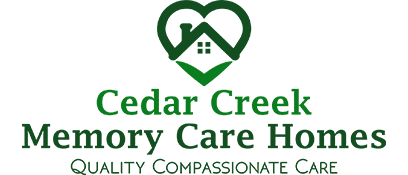According to the Alzheimer’s Association, more than 6 million Americans live with Alzheimer’s disease, and more than 11 million Americans provide unpaid care for people with Alzheimer’s and other types of dementia. Caring for any human being is a huge responsibility, but to provide care for a person with dementia has its own challenges. Life doesn’t prepare you for the personality and behavior changes, short-term memory loss, drop in energy levels and changes in communication a loved one may experience as a result of the disease, and it’s important that people educate themselves as soon as a loved one is diagnosed with dementia. Learning how to help a loved one with Alzheimer’s disease is crucial for their well-being and quality of life.
In the early stages, the effects of Alzheimer’s or dementia may be hardly visible, and the person affected can probably still take care of themselves without any help. This is when families should start to plan for the future and prepare for what may lie ahead. Read on to learn more about how to help a loved one with Alzheimer’s.
Communicating With a Loved One With Alzheimer’s Disease
People living with Alzheimer’s and related dementias can find it increasingly difficult to communicate as their disease progresses. They may become forgetful and confused, repeat things over and over or have a hard time finding the right words and paying attention during long conversations. Dementia and communication challenges often go hand in hand, causing frustration and isolation for both the person with dementia and their loved ones.
An inability to communicate effectively could lead to sadness, frustration and outbursts. Their families and caregivers may find it frustrating as well, but it’s important that they realize the disease is responsible for these changes and that it’s up to them to find ways to facilitate communication. Try some of the following tips to help reduce stress and make communication easier:
- Make eye contact, smile and address them by name.
- Use a calm voice and relaxed body language.
- Speak slowly and give one instruction or ask one question at a time.
- Ask questions that can be answered with yes or no.
- Actively listen when the person speaks, even if it’s difficult to understand them.
Manage difficult conversations in a way that causes the least distress. Use distraction or validation therapy if the truth is more painful. If they believe a departed loved one is still alive and will visit them later, there’s little benefit in correcting them because they’ll likely not be able to retain that new information. Telling them the person isn’t alive anymore will only cause sadness and pain.
Providing Daily Care for a Family Member With Alzheimer’s
Alzheimer’s disease is a degenerative brain disease with no known cure. As dementia progresses, a person with Alzheimer’s may become unable to take care of themselves and become reliant on the support and hands-on care of family members.
Essential care tasks may include bathing, dressing, grooming and medication management. Devise a care plan to establish a daily routine that not only considers the needs of the person with dementia but also their mental health and that of their caregivers. Try to strike a balance between activity and rest, and include all essential care tasks and memory care activities to promote healthy living and social engagement. This could mean scheduling time to go for a walk, visiting one of the local senior centers or meeting with friends. Involve the person with Alzheimer’s in the decision-making process for daily tasks, and be willing to adapt the routine as their needs change.
It’s also essential to take some precautions to ensure their safety around the home. Prevent falls by removing scatter rugs and other trip hazards. Lock away anything that could pose a danger, including guns, medicine and cleaning agents. Lower the temperature of the water heater, and disable the stove between uses. Keep lighters and matches out of reach. Watch out for signs of impaired driving, and prevent the person from wandering off. If stairs prevent a danger, gates or barriers may be needed to prevent a loved one from going up and down the stairs on their own.

The Role of Family Members in Alzheimer’s Care
An Alzheimer’s diagnosis affects not only the person diagnosed with the condition but other family members as well. The decision to provide home-based care for a loved one with dementia isn’t taken lightly, but it can be a good solution, especially in the early to middle stages of the disease. But as the disease progresses and new challenges arise, it will become physically and emotionally more demanding for a family member to provide quality care while seeing to their own personal care. Full-time caregivers who don’t administer adequate self-care often suffer from stress, depression and physical complaints due to the effort and fatigue of always being on duty. This is why it’s so important to build a support network within the family.
Being the primary caregiver doesn’t mean someone must be the only caregiver, and families should share tasks and responsibilities to give the primary caregiver regular breaks. This could include taking their loved one to the doctor or on outings, picking up prescriptions, visiting with them at home or even helping with household chores.
When other family members are unable to lend the person a helping hand, families may consider respite care or making use of adult daycare centers. A caregiver support group can also provide practical advice and emotional support.
Tips to Improve Daily Life for a Loved One With Alzheimer’s
There’s so much you can do to improve the quality of life of a loved one with Alzheimer’s disease.
- Establish a daily routine and keep them involved by encouraging them to do as much as they can for themselves. This will help reinforce a sense of familiarity and purpose.
- Establish a good bedtime routine and try to limit naps during the day to encourage healthy sleeping habits.
- Plan activities for each day. Exercise, play games, visit a museum, eat at a restaurant or visit friends. It’s not necessary to structure and manage every moment, but a few fun activities can go a long way toward curbing boredom and cutting down on excessive daytime napping.
- Limit noise. Too much noise can be overwhelming to a person living with Alzheimer’s and may cause them to become agitated, especially when they’re already having a hard time communicating, concentrating and filtering out background noises.
- Give them choices but keep things simple, generally limiting them to two options.
- Let them help with simple chores, but have realistic expectations. Adjust tasks to suit their abilities.
- Always be patient and respectful. This will improve anyone’s day.

Finding Help and Support for Alzheimer’s and Dementia Care
In the late stages of Alzheimer’s and related dementia conditions, a loved one’s ability to cooperate with their caregiver may rapidly decline as not only their problem-solving skills but also their physical health deteriorates. This, together with behavior and personality changes, could make it very difficult for a member of the family to continue caring for them at home.
Families should build a support system early on in their loved one’s dementia journey. There are a number of nonprofit organizations that are ready to provide local resources, support and advice, including Alzheimers.gov, the Alzheimer’s Association and the Alzheimer’s Foundation of America.
When residential care becomes necessary, Cedar Creek Memory Care Homes in Montgomery County, Maryland, is a great option. With five homes around the county housing a total of 46 residents, communities are kept small, and programs are individualized so staff can spend time getting to know each resident intimately and provide them with the care and support they need. Our Memory care facilities in Maryland are designed to resemble real homes, not institutions, and have one of the best staff-to-resident ratios in Maryland.
If you’re considering memory care for yourself or a loved one, contact Cedar Creek Memory Care Homes at (301) 384-4017 today.





